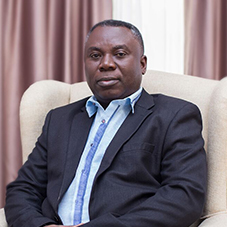The World Bank has highlighted the urgency for Nigeria to bolster its capital expenditure, cautioning that at the current rate of spending, it would take a staggering 300 years to bridge the nation’s infrastructure gap. This dire assessment was presented by Shubham Chaudhuri, the World Bank’s Country Director for Nigeria, during a keynote address at the recent Annual Banking and Finance Conference in Abuja.
Capital expenditure encompasses the funds allocated by the government for critical areas such as machinery, equipment, healthcare facilities, education, and infrastructure development. It also covers expenses related to acquiring fixed assets like land and government investments that yield future profits or dividends.
Chaudhuri’s presentation underlined Nigeria’s pressing need for a substantial surge in public spending. He pointed out that investment outlays in Nigeria, the largest economy in Africa, significantly lag behind those of nations like Indonesia, Ghana, Egypt, and Kenya. This lag has resulted in subpar infrastructure quality and limited accessibility.
Furthermore, Chaudhuri highlighted that Nigeria’s government revenues ranked among the lowest globally from 2015 to 2021. He emphasized that these meager revenues pose a significant risk to fiscal stability and debt sustainability.
The World Bank leader for Nigeria additionally underscored the alarming shortfall in access to finance. This deficiency further constrains the private sector’s capacity to invest, expand, and generate employment opportunities.
In his recommendations, Chaudhuri stressed that for Nigeria to achieve sustained growth and prosperity, both the federal and state governments must take decisive measures to fortify the nation’s security, political stability, and adherence to the rule of law.
He further advised policymakers to prioritize investment in human capital, particularly in children, and unleash the full potential of private sector investment. This, he emphasized, would spur job creation and enhance accessibility to finance.
Chaudhuri’s assessment underscores that Nigeria’s path to enduring growth and prosperity hinges on crucial actions taken by both federal and state governments. This encompasses ensuring security, and political stability, and upholding the rule of law as cornerstones of the nation’s progress.









